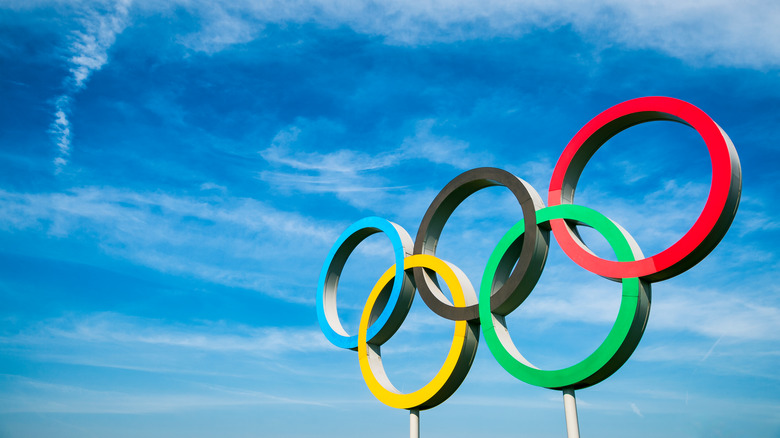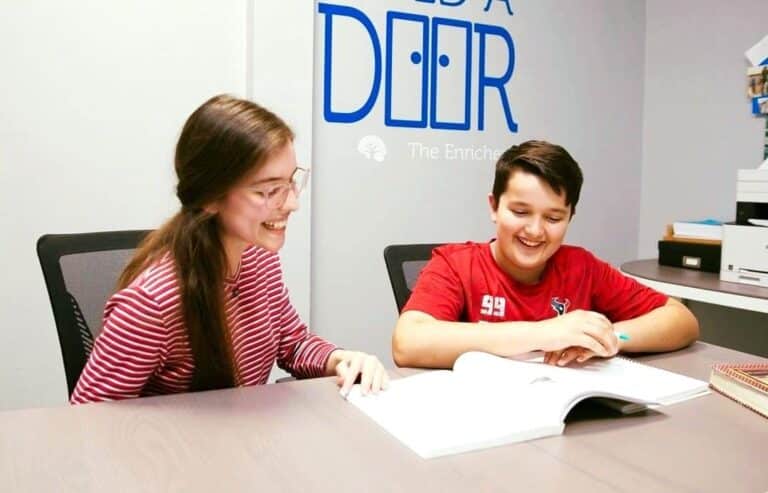The Tokyo Summer Olympics are in full swing, and many of us have turned into professional couch judges. (“Yikes, not her best dismount. She needed to stick that after her abysmal bar routine.”) While we might talk a big game, most of us are also well aware that these athletes are as close to being superhuman as a person can be. We might not be learning how to dominate a triathlon, nail a vault, or set butterfly records, but there are plenty of other things these Olympians can teach us. While these athletes are the epitome of hard work, dedication, discipline, and patience (thanks COVID!), that’s not all. These are five lessons students and parents alike can learn from the 2021 Olympians.
The false start in the men’s triathlon teaches us to control the controllables, but learn to be flexible and roll with the punches.
After years upon years of training – and months of anticipating the Tokyo 2021 starting gun – athletes experienced a rattling false start caused by a boat blocking the path of several athletes. Soaking wet, athletes had to climb out of the water, line up, and start again. These conditions could easily throw athletes off their game and put them in a weird headspace, but it didn’t. In fact, Kristian Blummenfelt, the gold medal winner, said the bizarre false start was “a positive thing” because it was “good practice.” Talk about finding a silver lining! This incident should remind students and parents alike that, while it’s helpful to control the things you can control, things are bound to go wrong in academics and in life and it’s important to be flexible and make the best of the circumstances.
Lee Kiefer and Anastasija Zolotic’s gold medal wins teach us that if it’s never been done before, it just means YOU can be the first.
Kiefer and Zolotic took home gold medals in individual foil fencing and taekwondo respectively, becoming the first Americans to do so. Kiefer is also the first Asian American to win a fencing gold in general, and she did it while in medical school. Both of these powerful women should remind students (and everyone, for that matter) that it doesn’t matter if something has never been done before. It just means that the title of “the first” is up for grabs. No one in your family has gone to college? No one from your high school has gotten into that college? That’s not discouraging – it’s motivating.
Emily Sisson’s decisive victory in the 10,000 meters during Olympic trials teaches us to shake off past failure and have confidence in our abilities going forward.
Two and a half years ago, Emily Sisson dropped out of the U.S. Olympic marathon trials at mile 22. She was devastated. Last month, Sisson ran her heart out in the 10,000 meters at the U.S. Olympic trials, setting a trials record and securing a trip to Tokyo. Even more, Sisson grabbed her lead on lap five of 25, and grew – not just held – that lead as the race progressed. Her confidence was shaken by her marathon heartbreak, but she came to track & field trials with the eye of the tiger. When she took the lead on her fifth lap in record high temperatures, she never doubted her stamina or questioned if she belonged at the front of the pack. Students: shake off any past disappointments, mistakes, or “failures” of your past. Believe in your abilities, and have confidence in what you bring to the table.
Yusra Mardini’s incredible story of survival teaches us our hardships shape us and make us strong.
Yusra Mardini is a Syrian swimmer competing in the Olympics as a member of the Refugee Olympic Athletes Team. After her home was destroyed in the Syrian Civil War, Mardini and her sister fled the war-torn country in a small boat. When the motor failed on the boat, Mardini and her sister jumped into the water, treading water for over three hours and helping guide the boat to safety. Now, she’s competing in her second Olympics. While Mardini’s life story is fraught with more hardship than most, we can still learn from her. Challenges and hardships can provide us with grit. Our stories can inspire others. Our strengths can shine in unbearable circumstances.
Simone Biles’ decision to withdraw from the gymnastics team and all-around competitions teaches us that there is absolutely nothing in the world more important than your mental and physical health.
Simone Biles’ decision to withdraw from both the team and all-around finals rocked the nation. Known as the “Greatest Of All Time,” most expected Biles to be an integral part in bringing home team gold, and she was a favorite to win gold in every individual event. However, Biles said she felt “the weight of the world on her shoulders” and was worried her mental health struggles could potentially cause her physical injuries. She reminded the world that there is “more to life than gymnastics.” Despite knowing she’d face inevitable backlash and disappoint people who tuned in to watch her compete, Biles prioritized her health over everything. She recognized that at the end of the day, there is nothing that should take precedence over her wellbeing. This is truly a lesson for all of us: there is nothing more important than your mental and physical health. Not final exams, not college applications, not extracurriculars – not even the Olympics.





